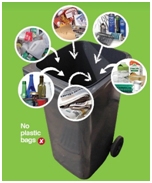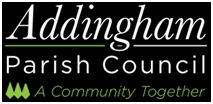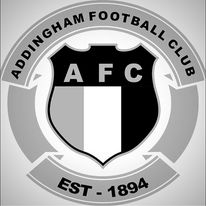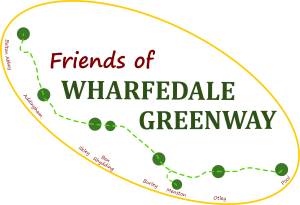2. Recycling more household waste
Why?
Separating our household waste into items that can be recycled from those that cannot saves energy and natural resources and minimises the residual waste that is either burnt or goes to landfill. Putting waste in landfill is the very last resort. Green garden waste can be used to make compost, either in your garden or by the Council.
How?
 Ensure that you have both a residual waste bin and a recycling bin supplied by Bradford Council.
Ensure that you have both a residual waste bin and a recycling bin supplied by Bradford Council.- Sort out all your household waste into items that can be recycled for the recycling bin and those that can’t for the residual waste bin. Follow the Council guidance very carefully
https://www.bradford.gov.uk/recycling-and-waste/wheeled-bins-and-recycling-containers/what-goes-in-my-recycling-and-waste-bins-and-bags/ - Clean or rinse out bottles, cans and plastics (but don’t use too much water!) before putting items in the recycling bin.
- Separate out cleansoft plastics and store separately. These are not allowed by Bradford Council, but can instead be taken to the Co-op in Addingham. https://www.coop.co.uk/environment/soft-plastics
- If you have a garden and generate garden waste ask Bradford Council for a green waste (brown) bin. However, there is a cost for the brown bin service, currently £48 per year.
- If you have a garden and have space for one or more compost bins, use these to the maximum to make your own compost.
- For uncooked food waste use your garden compost bin.
For more information on recycling, click here to see Ian Benson’s presentation “Home truths and myths busted”


















